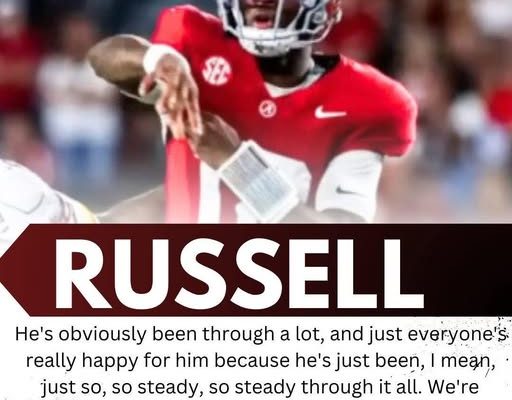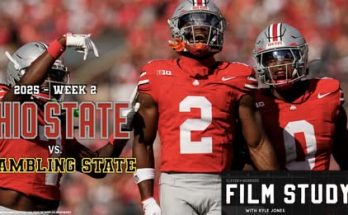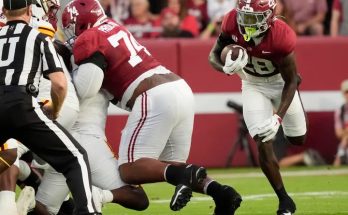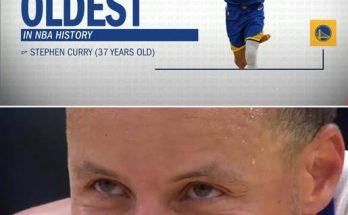When Kalen DeBoer took over the Alabama Crimson Tide program, much of the attention centered on how he would manage the transition into a new era after Nick Saban’s retirement. DeBoer, known for his innovative offensive schemes and quarterback development, was tasked with preserving one of the greatest dynasties in college football while also putting his own stamp on the program. One of the most fascinating storylines to emerge under his leadership has been the rise of true freshman quarterback Keelon Russell, a player many in Tuscaloosa and across the country are eager to learn more about. DeBoer’s comments on Russell reveal not only his evaluation of a young talent, but also his vision for what Alabama’s future at the position might look like.
Russell entered Alabama with high expectations but also with plenty to prove. The Crimson Tide have been spoiled with quarterbacks in recent years, producing NFL stars like Tua Tagovailoa, Jalen Hurts, Mac Jones, and Bryce Young. Even in the post-Saban era, Alabama fans expect excellence under center, and a freshman walking into that kind of pressure cooker has to show unusual maturity. DeBoer has praised Russell’s demeanor, noting that the young quarterback doesn’t appear rattled by the spotlight. He plays with the poise of someone who has been here before, even though the college stage is brand new to him. Coaches often stress that the most important trait for a young quarterback isn’t arm strength or athleticism, but rather composure in the face of chaos. DeBoer’s early assessment is that Russell has that rare calm, the kind of intangible that cannot be taught.
At practices and scrimmages, Russell has demonstrated a natural feel for the game that stands out to both teammates and coaches. DeBoer has emphasized that Russell’s growth isn’t just about raw talent, but about how quickly he’s learning the system. Alabama’s offense under DeBoer requires precision timing, the ability to read defenses quickly, and a willingness to trust the scheme. Russell, according to his coach, has shown an eagerness to absorb every detail. He spends extra hours in the film room, asks the right questions during meetings, and accepts coaching without defensiveness. These are the qualities that separate freshmen who fade into the depth chart from those who become stars.
Of course, the physical tools are also present. DeBoer has noted Russell’s strong arm, his ability to make throws outside the numbers, and his knack for delivering passes in tight windows. While still developing his mechanics, Russell possesses the kind of natural throwing motion that scouts drool over. Combined with his athleticism—quick enough to extend plays but not reckless—he fits the mold of the modern quarterback who can thrive in a balanced attack. DeBoer’s offensive history suggests he loves quarterbacks who can execute both the quick passing game and the occasional deep strike, and Russell has already flashed that versatility.
But what may be most encouraging to DeBoer is the way Russell has earned the trust of older teammates. Veteran players on a roster as stacked as Alabama’s don’t automatically buy into a freshman, no matter how talented he is. Trust has to be earned through consistency, accountability, and resilience. Russell has impressed teammates with how he carries himself in the locker room, never acting entitled, never suggesting he deserves anything handed to him. Instead, he has embraced the grind, competed for every rep, and shown a humility that makes others want to rally around him. When DeBoer speaks about Russell, there’s a clear undertone that he believes the team sees him as more than just another freshman—they see him as someone who could eventually lead them.
The comparisons to Alabama’s past quarterback greats are inevitable, and DeBoer has been careful not to fuel too much hype too quickly. He understands the dangers of expectations overwhelming a young player. At the same time, his words about Russell hint that he sees special potential. What separates this discussion from the usual coach-speak is the consistency of praise across multiple settings. Whether talking about Russell after a scrimmage or during media availability, DeBoer uses language that emphasizes maturity and leadership, not just physical ability. That kind of focus suggests that he views Russell as more than just a project; he sees him as someone who could be ready sooner than later.
This also speaks to DeBoer’s broader philosophy of quarterback development. At Washington, he turned Michael Penix Jr. into a Heisman finalist and one of the most productive passers in college football. He has a reputation for tailoring his offense to maximize his quarterback’s strengths, rather than forcing them into a rigid structure. With Russell, the same principle applies. Instead of asking him to be something he’s not, DeBoer has praised the freshman for playing within himself and not overreaching. That’s a key part of growth—knowing when to take a risk and when to stay disciplined. The balance between creativity and structure is one DeBoer has long understood, and Russell seems to be thriving under that guidance.
There’s also an important cultural piece to this story. Alabama football under Nick Saban was about relentless discipline, the “Process,” and an almost military-like atmosphere. DeBoer’s style is different, though equally effective. He focuses on relationships, communication, and building confidence in his players. For a freshman quarterback, that shift matters. Russell doesn’t just have to perform; he has to feel empowered to lead. DeBoer’s words about him suggest that he is creating an environment where Russell can grow into that role without being crushed by the weight of expectations. That approach might be exactly what Alabama needs in this transitional era.
Fans, of course, are already buzzing. In Tuscaloosa, the quarterback position is always under the microscope, and any hint of a future star gets amplified. Social media highlights from practice clips featuring Russell’s throws have only fueled the excitement. Every great program lives on its ability to reload, and the idea that Alabama may already have its quarterback of the future under DeBoer’s watch is electrifying for the fan base. Yet DeBoer continues to emphasize patience. He reminds everyone that Russell is still a freshman, still learning, and still developing the consistency required to win at the SEC level. The message is clear: the talent is there, but time and development are just as important.
It’s also worth noting how Russell fits into the bigger picture of Alabama’s roster. With skill players capable of stretching the field and an offensive line designed to impose physical dominance, Russell doesn’t have to do everything on his own. DeBoer has said repeatedly that the quarterback doesn’t need to be a superhero, just someone who executes with precision and takes advantage of opportunities. For a freshman, that’s a manageable role. But the upside remains tantalizing—if Russell can grow into more, Alabama could once again have a quarterback who changes the trajectory of entire seasons.
The SEC is unforgiving, and young quarterbacks rarely have the luxury of easing into their roles. DeBoer knows this, and his measured praise of Russell suggests he is balancing optimism with realism. Still, when a coach with DeBoer’s track record talks about a freshman in such glowing terms, it carries weight. He has seen great quarterbacks before, and he understands what early signs matter. For Russell, those signs are pointing toward a very bright future.
Ultimately, the story of Kalen DeBoer and Keelon Russell is about more than one coach and one player. It represents the larger narrative of Alabama’s next chapter. The dynasty Nick Saban built isn’t disappearing, but it is evolving. For that evolution to succeed, Alabama needs not just talent, but leadership and vision. In Russell, DeBoer sees the raw materials of a future star. In DeBoer, Russell has a mentor uniquely equipped to shape his career. The combination could be the foundation of Alabama’s next great run, one that keeps the program at the forefront of college football.
As the season unfolds, all eyes will be on how much Russell plays, how quickly he develops, and how he handles the pressure of being “the next guy” at Alabama. But if DeBoer’s words are any indication, the future looks promising. Russell isn’t just another freshman quarterback—he’s a player with the potential to define an era. And under DeBoer’s guidance, that potential may soon become reality, ensuring that Alabama remains not just relevant, but dominant, in the years ahead.



